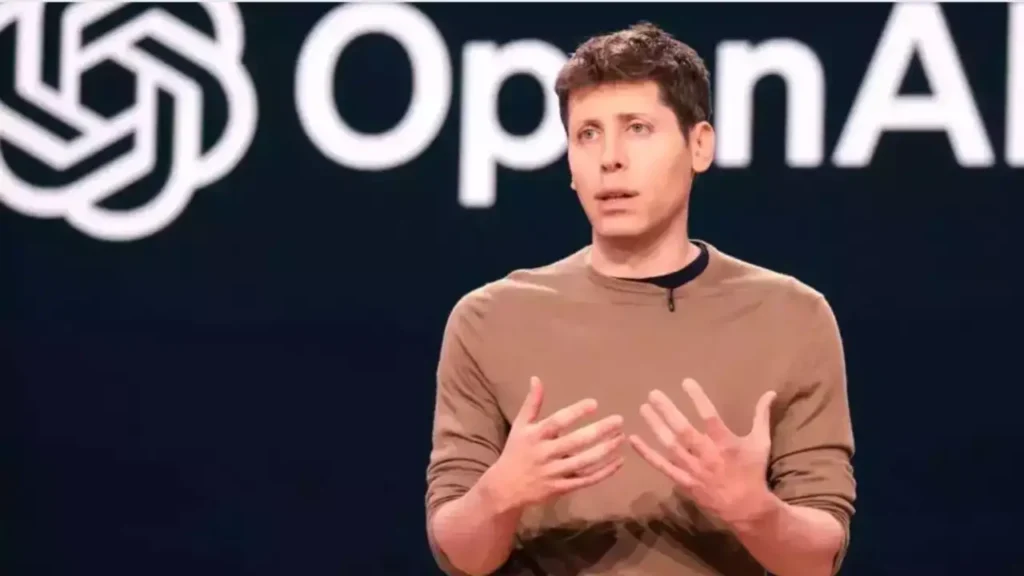Artificial intelligence has rapidly transformed the way we work, learn, and communicate, but OpenAI’s next big leap centers on a simple idea memory. With GPT-5 freshly launched, OpenAI CEO Sam Altman has already teased GPT-6 memory as the defining feature of the upcoming model.
Unlike past versions that respond to queries in the moment, GPT-6 will remember who you are, adapt to your routines, and grow into a truly personal AI companion.
Altman recently explained, People want memory. His point is clear users don’t just want smart answers they want AI that understands them personally. GPT-6 memory aims to bridge the gap by remembering conversations, preferences, and goals.
Think about it real relationships are built on remembering. A friend knows your favorite drink, recalls your past struggles, or checks in on your progress. AI without memory feels transactional with memory, it begins to feel human.
Personalized AI in Practice
We already see hints of what GPT-6 memory could offer. Platforms like Replika and Character.AI allow chatbots to recall user details across conversations. For instance, a Replika user might say their AI remembers birthdays or emotional struggles.
But the limitations are obvious. Users often report memory lapses, inconsistencies, or surface level recall. This creates frustration rather than trust. GPT-6 memory could change the game by making recollection accurate, consistent, and deeply adaptive. Instead of repeating your preferences every session, GPT-6 would evolve alongside you.
AI researchers believe memory is the next milestone. Dr. Fei-Fei Li from Stanford notes that memory allows machines not only to respond but to anticipate. That shift from reaction to anticipation could redefine AI’s usefulness.
Wharton professor Ethan Mollick, who studies AI in education, envisions a future where GPT-6 memory revolutionizes learning. Imagine a GPT-6 tutor that remembers where you struggled weeks ago, tracks your progress, and customizes lessons over months.
That’s not tutoring that’s mentorship. By embedding memory, GPT-6 could become less of a tool and more of a long term collaborator.
When AI Forgets
Anyone who has used AI assistants knows the frustration of repetition. You might ask ChatGPT to write in a simple tone or track your fitness goals, only to find it forgot in the next session. This creates a loop of restating needs over and over.
With GPT-6 memory, that cycle could end. Imagine your AI remembering your writing style, your favorite productivity hacks, or even the projects you’re working on without needing reminders. That personal continuity could make AI not just useful but indispensable.
Ethical Concerns Around GPT-6 Memory
As exciting as memory sounds, it raises major ethical and privacy questions. If GPT-6 remembers personal details, how securely is that data stored? Will users have control over what memory is saved, edited, or erased?
Could memory reinforce old mistakes or one sided perspectives? Altman has hinted that GPT-6 will offer users control similar to managing privacy settings where they can decide what the AI remembers or forgets. Still, building trust will be critical for adoption.
The applications of GPT-6 memory go far beyond casual chats. For businesses, the potential is massive. Imagine a support bot that recalls your past issues and fixes problems faster.
Doctors could work with AI assistants that remember patient histories across visits, saving time and reducing errors. Memory enabled AI tutors could personalize lessons over months or even years, giving every student individualized attention.
In short, GPT-6 memory could blur the line between machine and partner, creating competitive advantages in industries where personalization matters most.
The Human Side of GPT-6 Memory
At its core, memory isn’t about data it’s about relationships. When someone remembers you, it creates a sense of validation and connection. If GPT-6 memory can replicate even a fraction of that emotional impact, it could make AI feel more human than ever.
But there’s a double edge. Psychologists warn that users might become overly dependent on memory enabled AI, replacing human connection with machine companionship. Still, others argue it could provide vital support for those struggling with isolation or loneliness.
Altman didn’t share a release date for GPT-6 but promised it would arrive faster than the gap between GPT-4 and GPT-5. This hints at OpenAI’s urgency in rolling out memory enabled systems.
The leap from GPT-5 to GPT-6 isn’t just an upgrade in intelligence it’s a step toward personalized intelligence. GPT-6 memory could redefine how we see AI not as a tool we restart daily, but as a companion that grows with us.
The message is clear GPT-6 memory is the future. By remembering conversations, learning preferences, and adapting to individuals, GPT-6 could evolve from a reactive assistant into a proactive, personal partner.
Case studies already show the demand for personalized AI, expert opinions confirm the potential, and personal frustrations highlight why memory is essential. While ethical challenges remain, the path forward is undeniablebmemory is what will make AI truly human like.
Sam Altman’s bet is bold, but if he’s right, GPT-6 memory will mark the beginning of AI that not only thinks but also remembers and that’s how it will finally feel like it understands us.

